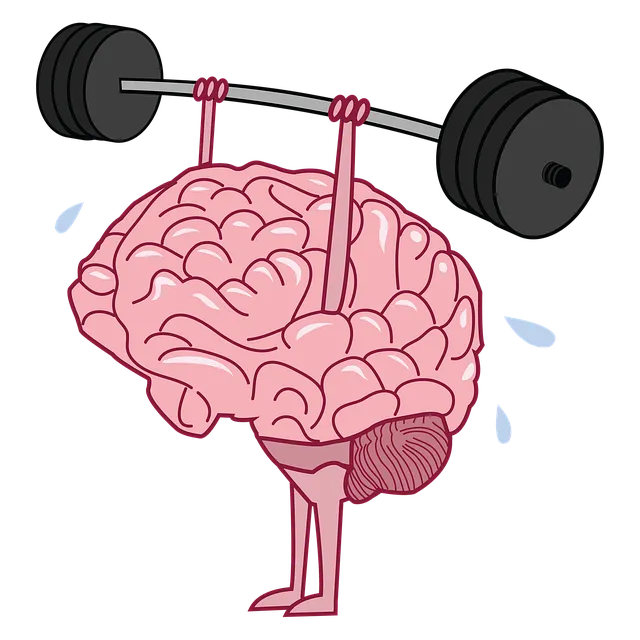Understanding mood regulation is crucial for emotional balance, influenced by various dynamic factors. Kaiser Boulder offers extensive resources, including access to licensed therapists and specialized programs for anxiety, depression, and stress management, guiding individuals in developing effective strategies for managing their mental health. Techniques like mindfulness, Cognitive Behavioral Therapy (CBT), regular physical activity, quality sleep, and balanced diets enhance resilience and well-being. For severe emotional crises, professional help from Kaiser Boulder's mental health services provides tailored guidance, reducing stigma and encouraging proactive mental health management. Learn how to access these services for improved mental hygiene.
Mood regulation is a vital skill for maintaining emotional well-being. In today’s fast-paced world, understanding and managing our moods effectively can be challenging. This comprehensive guide explores various strategies to help you achieve emotional balance. We delve into the intricacies of mood regulation, offering insights on cognitive techniques and lifestyle changes. Additionally, we provide a valuable resource guide to accessing mental health services through Kaiser Boulder, empowering you with the tools needed to enhance your overall well-being.
- Understanding Mood Regulation: Unraveling Emotional Balance
- Kaiser Boulder's Mental Health Services: A Resource Guide
- Cognitive Techniques for Effective Mood Management
- Lifestyle Changes to Enhance Emotional Well-being
Understanding Mood Regulation: Unraveling Emotional Balance

Understanding Mood Regulation is a crucial step towards achieving and maintaining emotional balance. It involves recognizing that our moods are complex, dynamic, and often influenced by a multitude of factors—from daily stressors to deeper-seated emotional patterns. By understanding these dynamics, individuals can begin to develop effective strategies for managing their mental health. For those seeking guidance, Kaiser Boulder offers extensive resources, including access to mental health services, which can play a pivotal role in navigating these processes.
One powerful tool in the quest for mood regulation is Mental Wellness Journaling Exercise Guidance. Regular journaling allows individuals to track their emotions, identify triggers, and reflect on personal growth. Additionally, engaging in Depression Prevention strategies like mindfulness practices or cognitive-behavioral techniques can help disrupt negative thought patterns and promote emotional healing. These processes are not just about managing symptoms; they empower individuals to develop resilience and cultivate a deeper sense of well-being.
Kaiser Boulder's Mental Health Services: A Resource Guide

Kaiser Boulder’s Mental Health Services offer a comprehensive resource guide for individuals seeking support and resources for their mental well-being. If you’re wondering how to get mental health services through Kaiser Boulder, this guide is your starting point. They provide a wide range of services tailored to different needs, from individual therapy sessions to group support programs. The goal is to promote emotional healing processes and empower individuals with tools for self-care routine development.
The resource guide highlights various resources available within the Kaiser Boulder network, including access to licensed therapists, counselors, and psychiatrists. They also offer specialized programs addressing specific issues like anxiety, depression, and stress management. Additionally, the guide emphasizes the importance of conflict resolution techniques as a vital aspect of maintaining good mental health. By utilizing these services, individuals can take proactive steps towards fostering better mental health and enhancing their overall quality of life.
Cognitive Techniques for Effective Mood Management

Cognitive techniques are powerful tools for anyone looking to effectively manage their mood and emotional well-being. By focusing on challenging negative thought patterns and replacing them with more positive, realistic ones, individuals can significantly improve their mental health. This is especially beneficial for those in high-stress professions, like healthcare providers, who often encounter burnout prevention strategies as a crucial aspect of maintaining good mental hygiene.
Through mental health services, such as those offered by Kaiser Boulder, individuals can learn and apply cognitive behavioral therapy (CBT) techniques to navigate emotional regulation challenges. CBT teaches how to identify and change unhelpful thinking habits, thereby reducing symptoms of anxiety and depression. Enhancing mental health awareness and adopting these evidence-based strategies can foster better coping mechanisms, leading to improved overall well-being, even in the face of stressful circumstances.
Lifestyle Changes to Enhance Emotional Well-being

Maintaining emotional well-being is a multifaceted endeavor, and lifestyle changes play a pivotal role in effective mood regulation strategies. Incorporating regular physical activity into your routine can significantly boost mood due to its ability to stimulate the production of endorphins, often referred to as “feel-good” hormones. Moreover, prioritizing quality sleep habits, typically 7-9 hours per night, is essential for emotional resilience and cognitive function. Adequate rest aids in stress reduction and enhances one’s capacity to cope with life’s challenges.
In addition to these practices, cultivating healthy eating habits can profoundly impact mental health. A balanced diet rich in whole foods, including fruits, vegetables, lean proteins, and omega-3 fatty acids, supports optimal brain function. Conversely, excessive caffeine intake or a diet high in processed sugars can lead to mood swings and increased anxiety. For those facing emotional crises, seeking professional help is paramount. Resources like Kaiser Boulder provide accessible mental health services, offering guidance tailored to individual needs through therapy, counseling, and support groups. Enhancing public awareness about these services through campaigns can mitigate the stigma associated with mental health issues, encouraging individuals to proactively address their well-being, thereby preventing burnout before it becomes severe.
Mood regulation is a vital aspect of emotional well-being, and there are numerous strategies to help individuals achieve balance. By understanding the intricacies of mood management, one can navigate their emotional landscape effectively. This article has explored various techniques, from cognitive therapies to lifestyle adjustments, empowering readers with tools to enhance their mental health. For those seeking support through Kaiser Boulder’s Mental Health Services, accessing resources is straightforward. Remember, taking charge of your mood and emotional health is a powerful step towards a fulfilling life.






